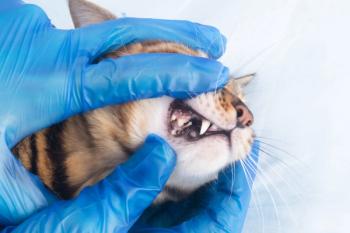
- dvm360 May 2019
- Volume 50
- Issue 5
Taxpayer-funded kitten slaughter to end, USDA says
Controversial government research has come to a grinding halt, thanks to a watchdog group.
The Agricultural Research Service (ARS), an arm of the U.S. Department of Agriculture (USDA), announced this week that it has “redirected” its research on toxoplasmosis and will no longer use cats for experimental purposes in any ARS laboratory.
The ARS toxoplasmosis research, ongoing since 1982, has yielded excellent results, according to the organization's press release: Toxoplasma gondii prevalence has been cut in half in the United States. Cats are the only host in which T. gondii can complete its life cycle and produce eggs, hence the use of kittens in this research. After the cats were intentionally infected and the parasites harvested, the animals were euthanized.
The ARS experiments were the subject of public outcry last year after a media blitz by the White Coat Waste Project (WCW), whose mission is to “stop taxpayer-funded animal experiments,” but the research came a screeching halt following a scathing
WCW's findings brought widespread attention to the research and prompted bipartisan legislation-the Kittens in Traumatic Testing Ends Now (KITTEN) Act-to ban animal testing by the USDA.
“While I strongly support scientific research, taxpayer money and federal resources should be spent on advancing scientific research in an ethical manner, not on inflicting pain on kittens or killing them after they are used in agency testing,” U.S. Rep. Jimmy Panetta (D-California), who cosponsored the bill, said in a March press release.
Panetta lauded the decision to cease kitten experiments. “I commend the USDA for their decision to end this type of testing on kittens,” he said on Twitter. “They listened to the people and responded appropriately to our concerns. This is how our institutions, our government, and our democracy should and must work.”
According to the ARS press release, its lab stopped using research kittens in September 2018. The remaining 14 uninfected kittens at the facility are now available for adoption by employees.
Articles in this issue
over 6 years ago
Alane Cahalane: Saving moon bears and caring for Hong Kongs petsover 6 years ago
Commentary: Veterinarians need better boundariesover 6 years ago
How to know if your veterinary hospital needs a CT scannerover 6 years ago
Just Ask the Expert: An alternative to Clavamox Drops?over 6 years ago
Will New York law change veterinary malpractice?over 6 years ago
DVM needed: A look at the associate veterinarian shortageover 6 years ago
Former AVMA president Ren Carlson diesNewsletter
From exam room tips to practice management insights, get trusted veterinary news delivered straight to your inbox—subscribe to dvm360.






